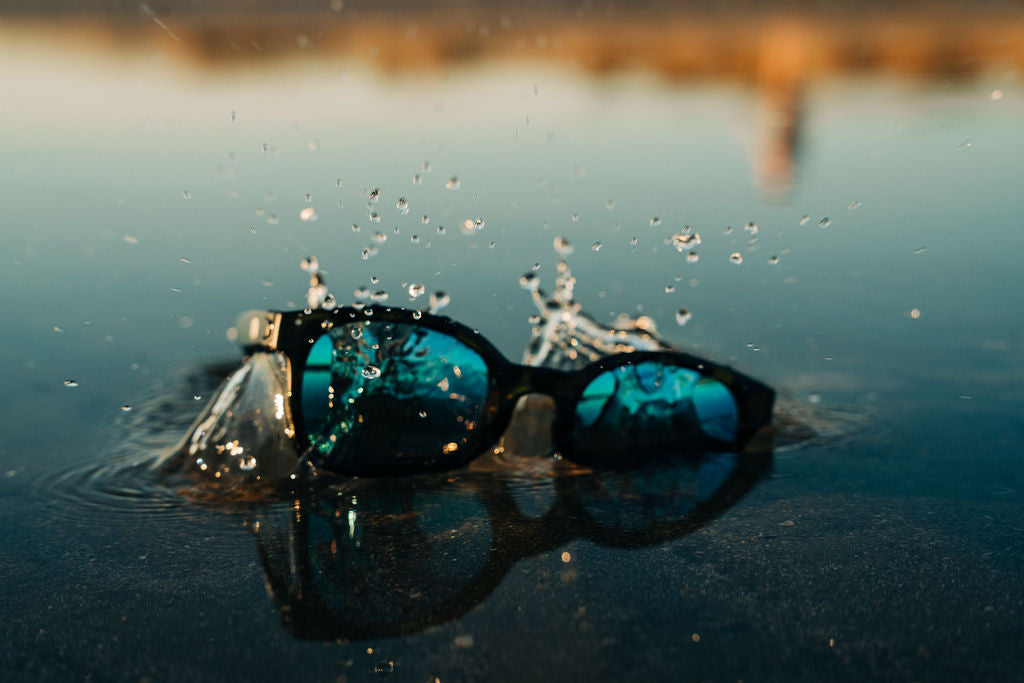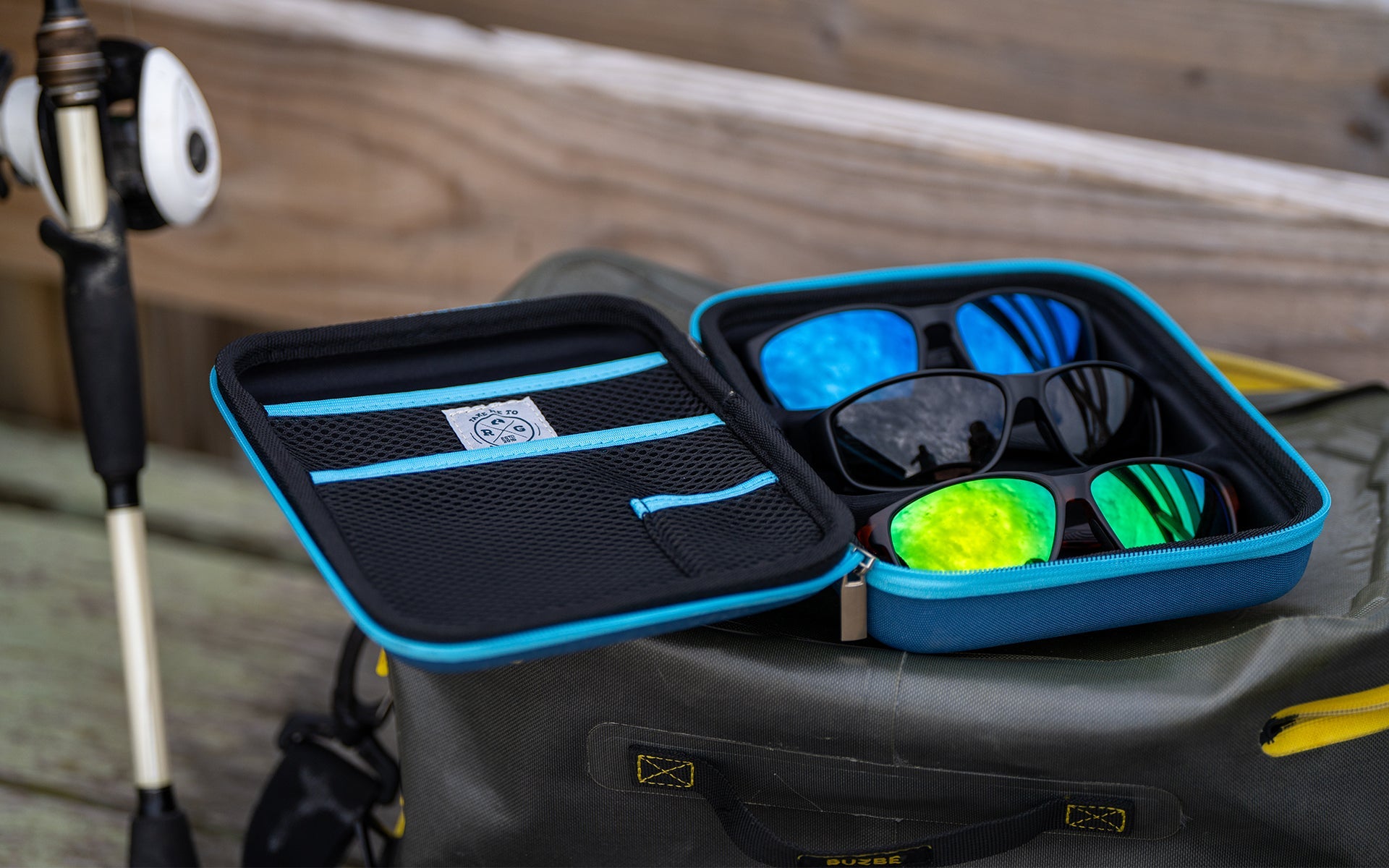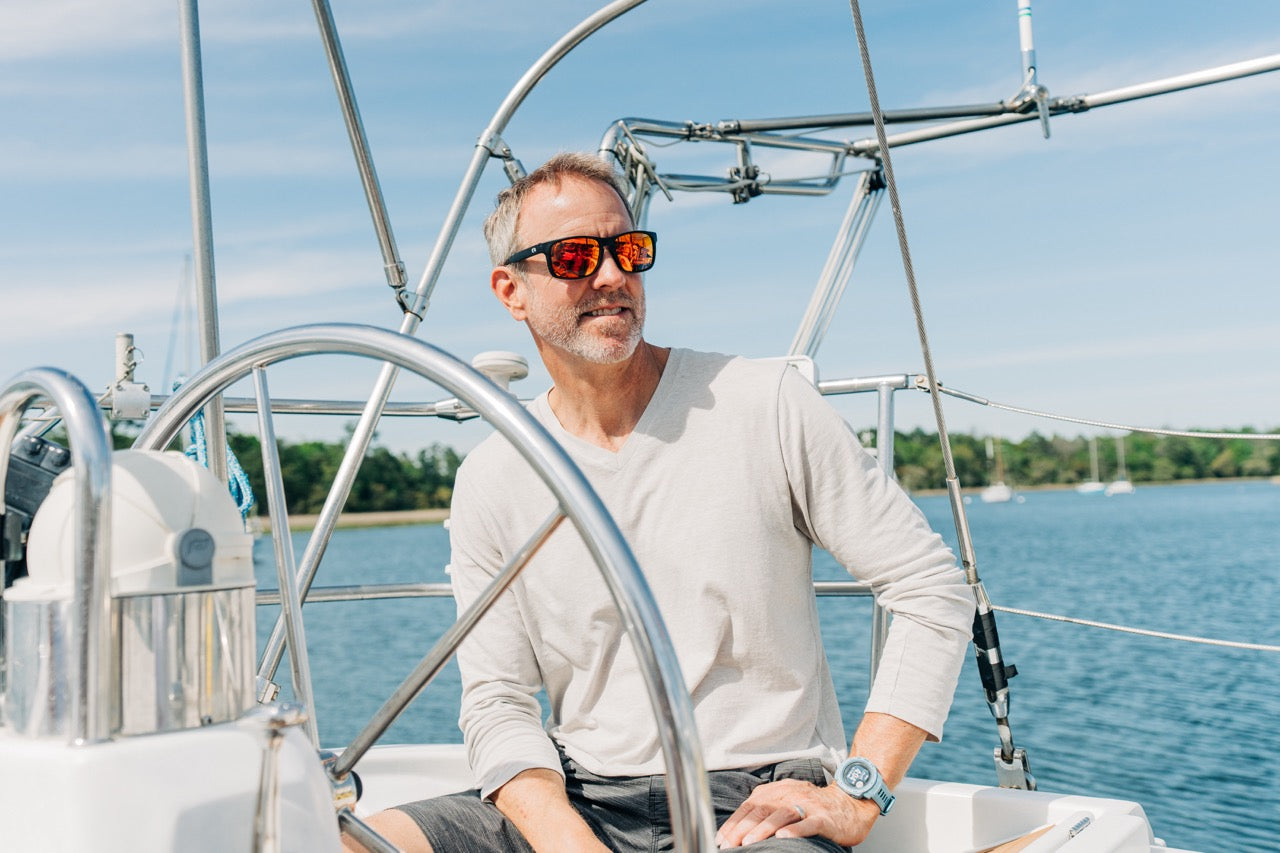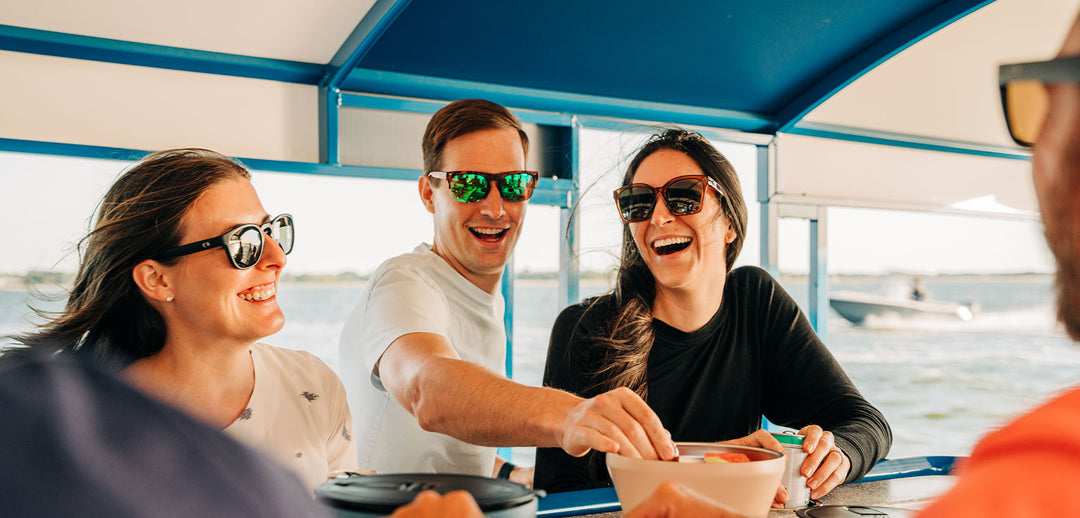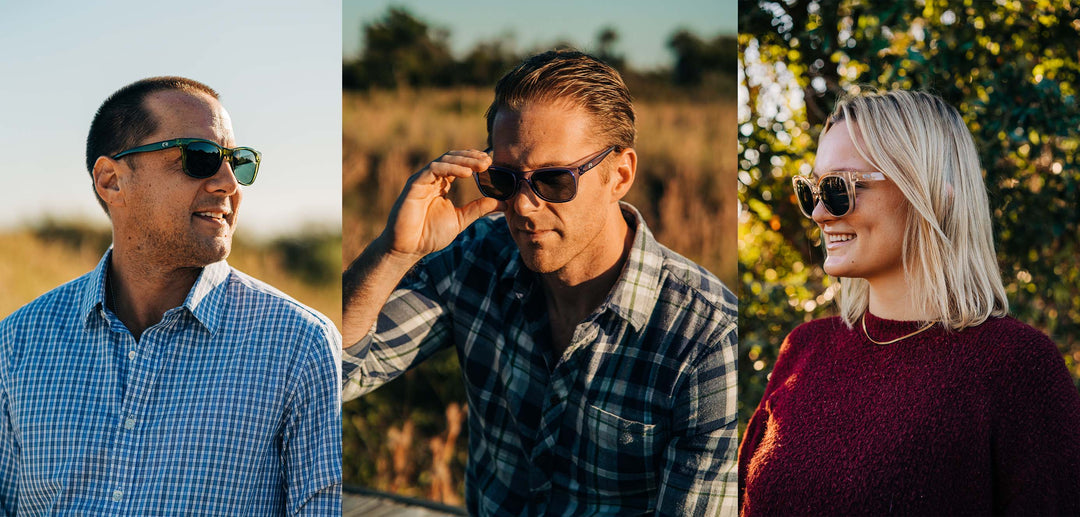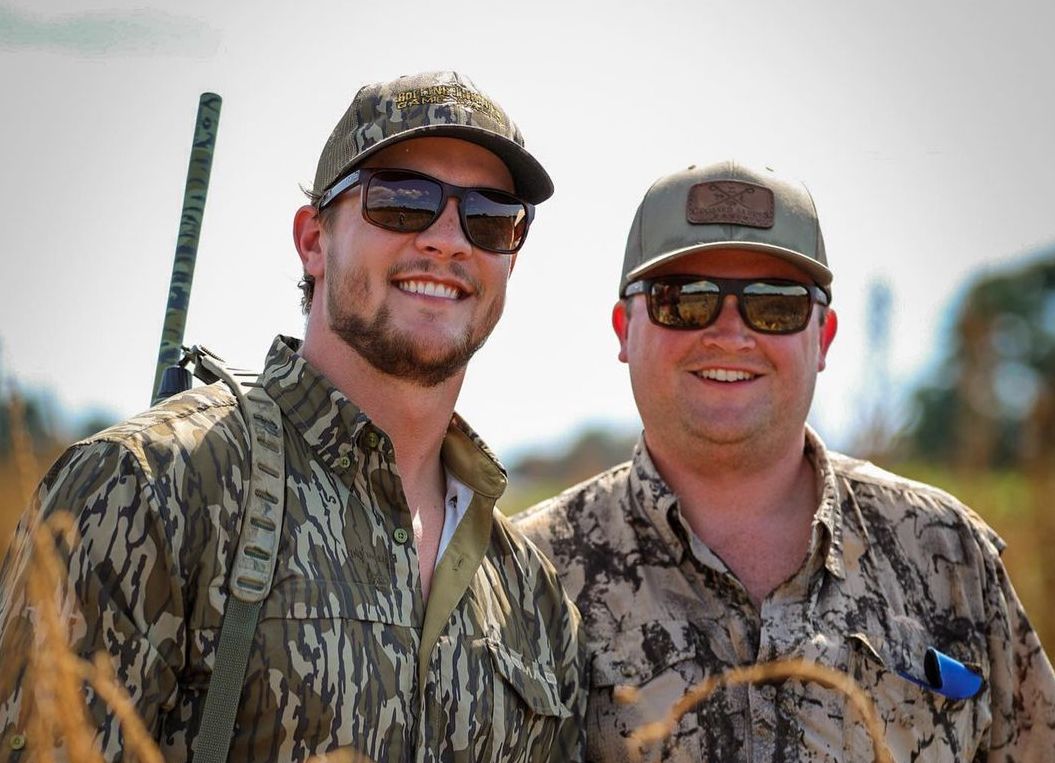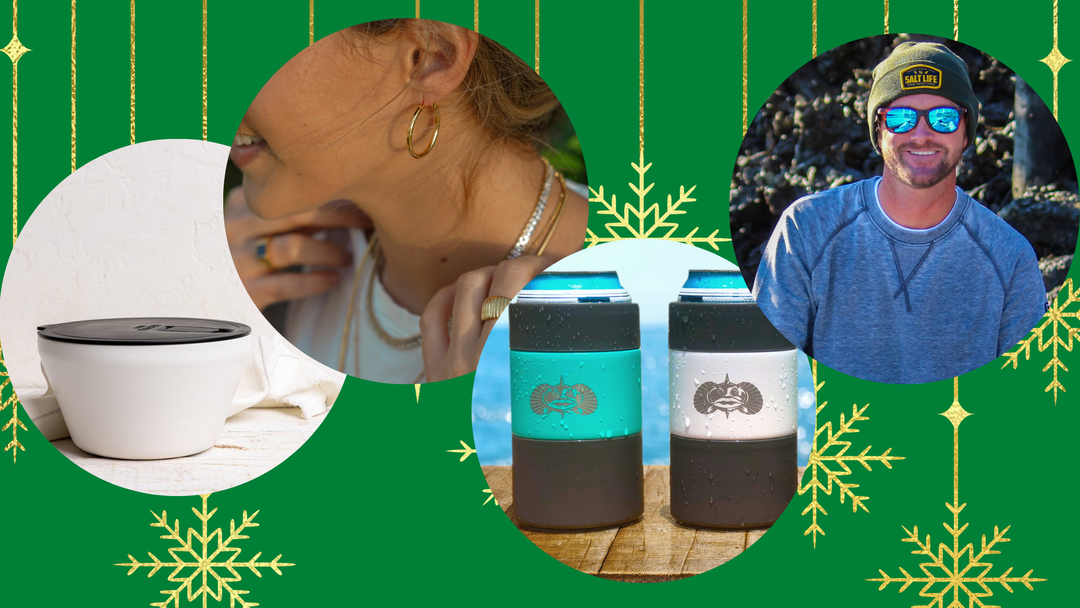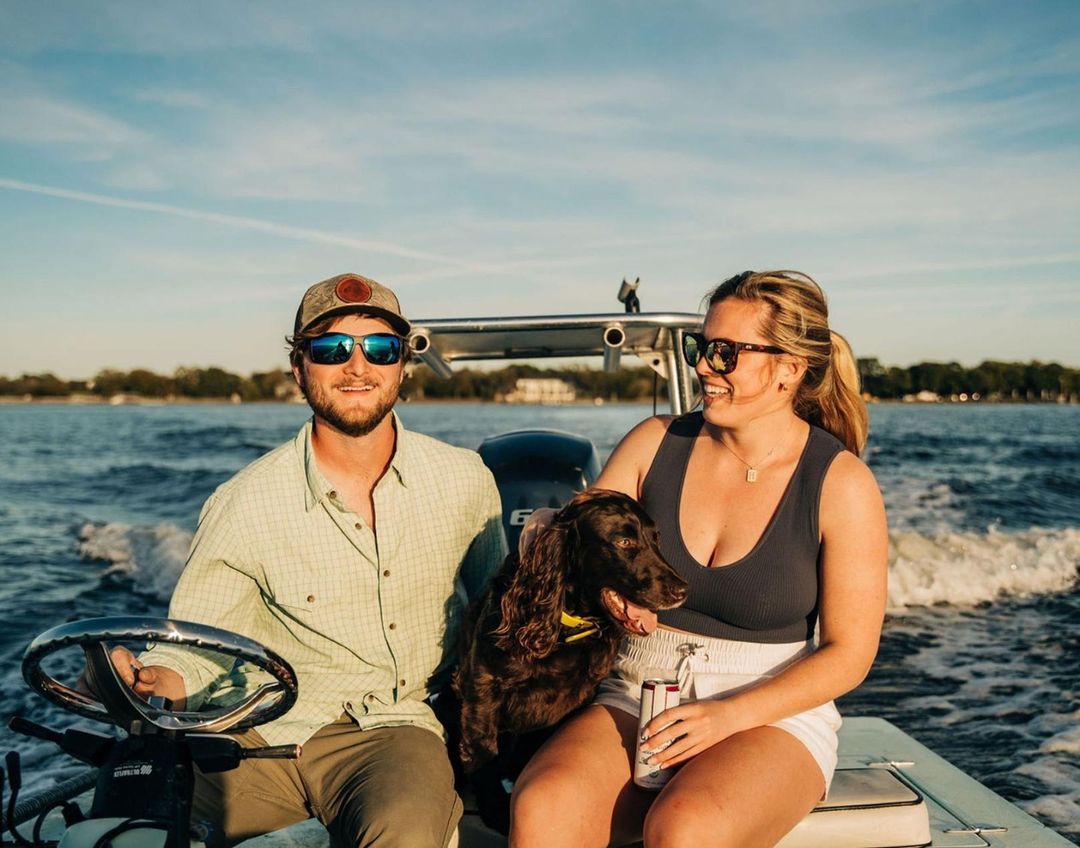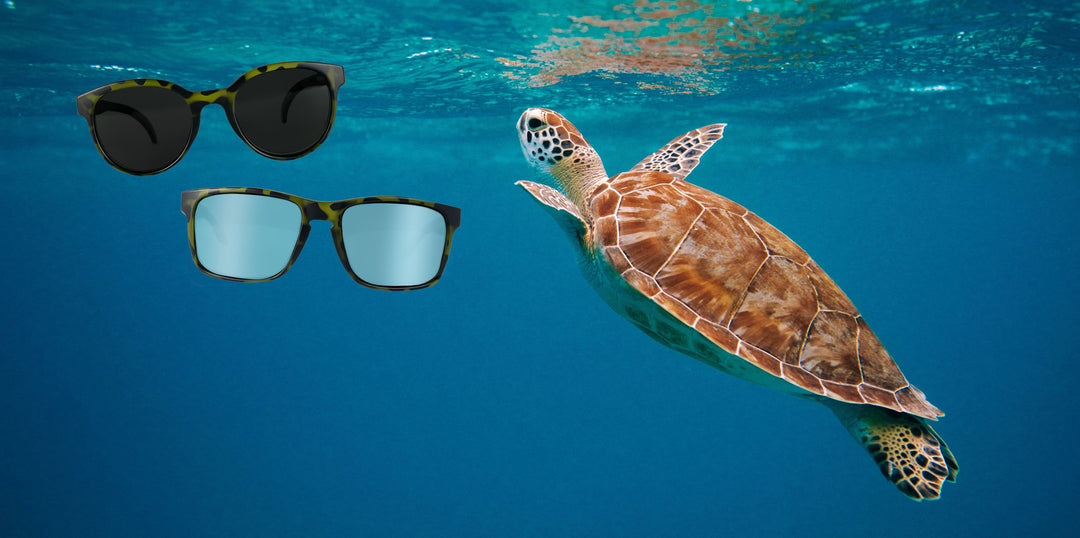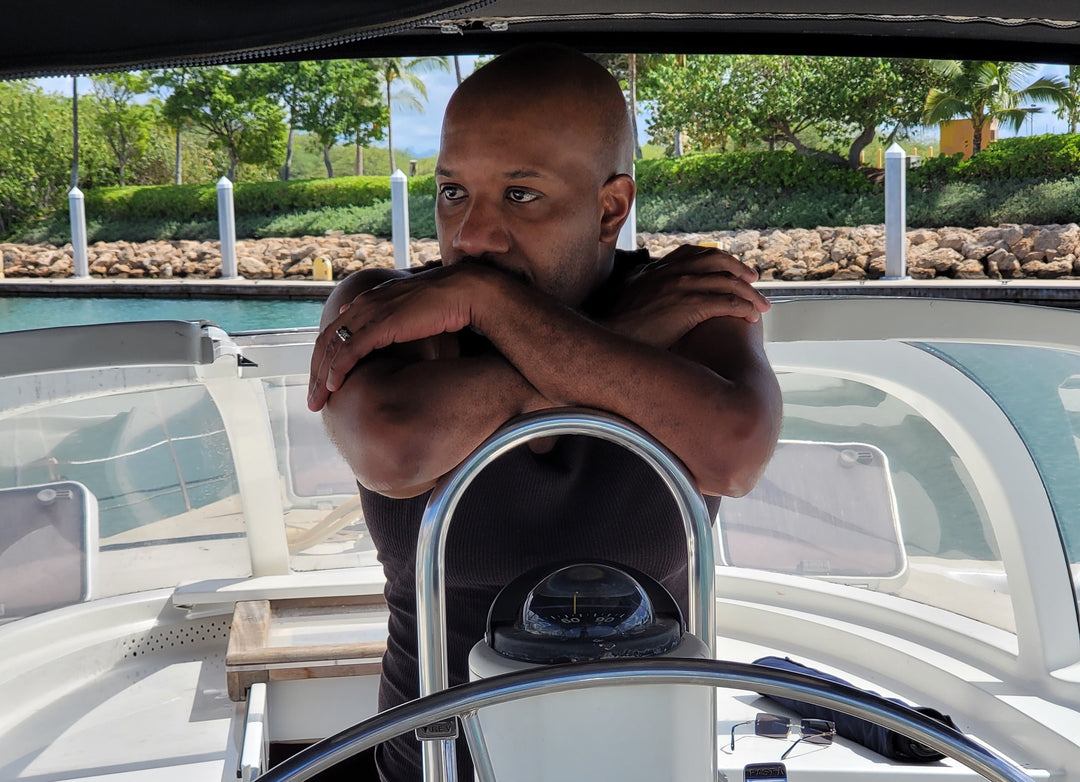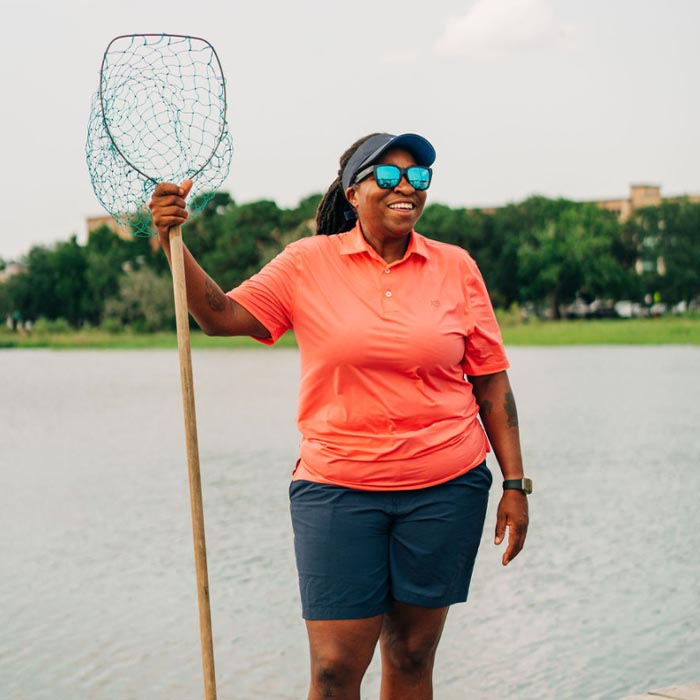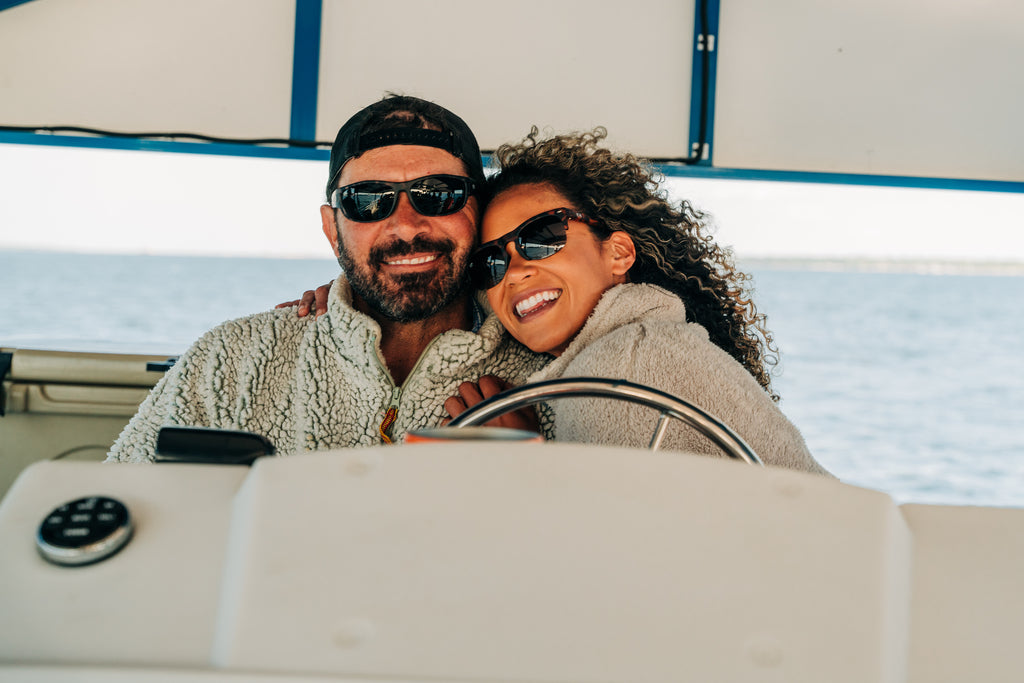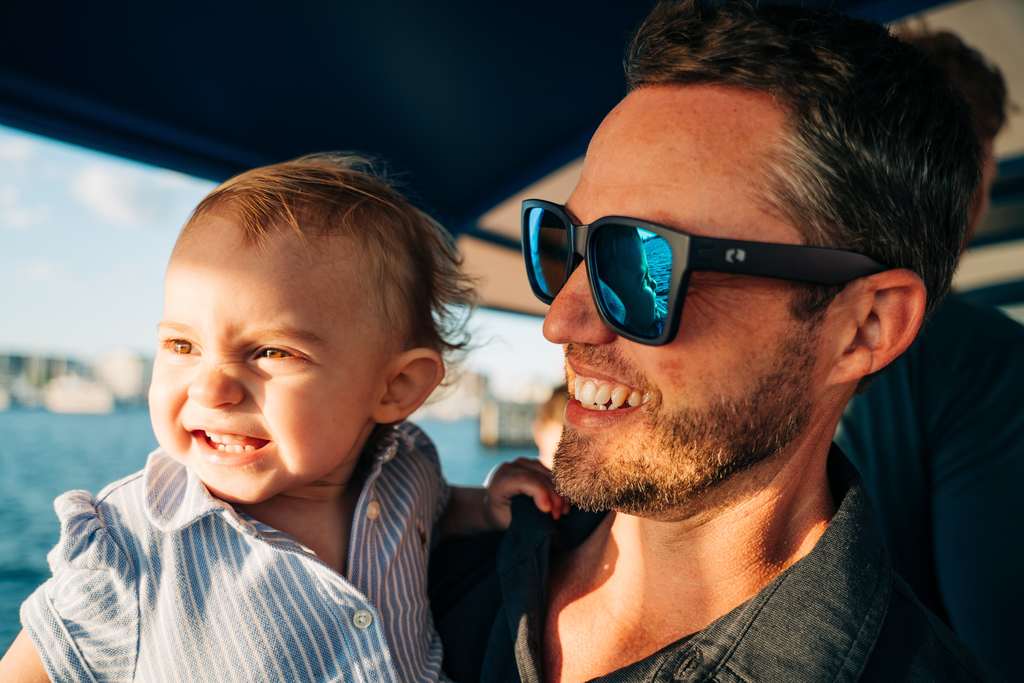Fifteen Questions with Angela Smith
WE SIT DOWN WITH ANGELA SMITH, FOUNDER OF SHARK TEAM ONE, TO DISCUSS HOW A GRADE-SCHOOL PASSION BECAME A LIFE-CHANGING NONPROFIT.
1. Starting with some basic background information, can you tell us why you love the ocean so much?
From an early age my family gravitated toward the ocean. We lived on the coast of Maine, sailed on my Dad’s sailboat and learned everything there is to know about being on and around the water. Later, I went on to sail around the world while learning how to scuba dive and shoot underwater photography.
2. How did Shark Team One come to exist?
I was on an expedition in Belize and we did a very complicated series of dives out in deep blue water off Gladden Spit. We searched for whale sharks for days, and on the final day we found one. After all that searching we only found one small whale shark at a depth of about 80 feet. It was after that experience that I realized certain critical species are so hard to find because there are so few individual animals left.
I also knew there was a need for a science-based research and expedition organization to specifically help save endangered species, so I founded Shark Team One.
3. Shark Team One has a long list of accomplishments: policy changes, establishing a long-term water quality program, an approved marine protection proposal, etc. What would you say is your proudest or greatest achievement?
It’s hard to choose and many of the projects are very different, but being successful with policy change and creating marine protected areas is a big deal and it takes a lot of work and passion, so any time we can accomplish that, it’s a proud moment for everyone involved.
Rheos Partner in
Giving Back
Shark Team One promotes marine-protected areas as valuable tools for ecosystem and species protection.
Protecting
Sperm Whales
Smith has a new film coming out, Whales of Change, about sperm whales and the impacts of climate change .
Research
and Expeditions
Smith combines endangered species research and conservation with cultural aspects.
4. When you were a child, did you ever think this is what you’d end up doing?
Yes, I always knew. From carting around a stuffed dolphin bigger than I was as a tiny kid, to knowing how to identify every local bird species in the third grade, to science projects in junior high school about how to reduce plastic waste, I always knew I would be involved with something to do with wildlife, conservation and helping the planet.
My first conservation article was titled “Pollution Concerns a 4th Grader.” I’ve been trying to save the planet ever since!
5. It’s really easy to step back and feel overwhelmed by just the massive amount of work still left to do to reduce the impact of the climate crisis and to save our oceans and overcome legislative battles. For many, it can be really disheartening. What would you say to someone who is feeling discouraged about this type of activism?
It’s overwhelming for sure and there’s only so much one human or one group of humans can do, so the best thing to do is to take it a step at a time. Try to do as much outreach as you can so others become advocates who can help spread the word and create conservation action faster.
Also, when you work in conservation, you are usually in it for the long haul, so keep that in mind. Things will change no matter how small in your lifetime, but prepare for the next step; make sure to include students in your programs. Some of the issues we face will take multiple generations to try to fix.
“Hope” is a word that a lot of famous conservationists like Sylvia Earle and Jane Goodall use a lot and that’s a very good concept. You need to keep up the hope and continue to see the glass half full to keep striving to do good in the world.
6. What gives you hope?
The look in the eyes of a student I’ve mentored, or when an adult decides to drop their current career in an unrelated field and go work in conservation, or when many people join together for a cause. The fact that the next generation is so strong also gives me hope, like watching the determination of Greta Thunberg when she talks about climate change.
The ocean advocates of all ages whom Shark Team One creates give me a huge amount of hope. The youngest member of Shark Team One is 10 years old and the oldest is 82. Both of those people give me immense inspiration because it means our reach is spanning generations.
It’s going to take all these advocates and generations to solve ocean issues, and to get things done because the problems facing our world’s oceans are vast, global problems.
7. Talk to us about the best expedition you’ve done so far. Are there any that stand out as particularly memorable?
They are all amazing and memorable, but the Sperm Whales of Dominica expedition series where we go deep into the Caribbean to study sperm whale family groups off Dominica, West Indies is always a once-in-a-lifetime experience and we’re constantly discovering new whale behavior and seeing things few humans get to see, like sleeping whales for instance!
Our whale shark expeditions stand out as well. When people see whale sharks for the first time they have literally been known to scream out and cheer. People usually have wanted to see a whale shark for a long time or it’s been an animal on their bucket list, so when they finally see one and I’m there to witness that, it’s pretty incredible.
The whale shark expeditions are part of our Endangered Whale Shark Conservation Program so each person is helping to save whale sharks which of course is what it’s all about.
8. Besides bringing awareness and generating support for ocean conservation, what do you hope people experience or learn on expeditions?
We teach participants how to become citizen scientists, gather data, take field notes, use the latest technology designed to help save wildlife, drive ROVs and any number of activities as they take part in the research projects. I hope they learn how to appreciate and respect the animal we are working to save and I know they do because each person is always changed after the expedition. We have literally changed people’s lives. Some have returned home, quit their existing jobs and started working in conservation!
Everyone who comes into the field with us is changed in some way. You can’t be eye to eye with a sperm whale or swimming fast to keep up with a 40-foot whale shark and not go home with a different attitude and somehow changed forever.
So, to boil that down, I’d say respect for the ocean and learning how they fit into the bigger picture of ocean conservation and the natural world around them.
9. Shark Team One has already done so much for ocean conservation, including projects for schools which is amazing! With so much already under the organization’s belt, what’s next?
We have some new programs coming out regarding climate change awareness and are expanding our Endangered Whale Shark Conservation Program by leaps and bounds. We also keep expanding to include research to benefit other endangered species in addition to sharks, particularly marine mammals such as sperm whales, orca and narwhal. We are about to launch a new Arctic Endangered Species program as well.
10. We’d love to hear more about your team. Can you brag about them?
The list is long of the amazing people who make up Shark Team One. We have programmers, people doing research and development creating technology to save wildlife, people who head up programs in other countries, educators, scientists and researchers. Then since we do so much in documentary film production, we have editors, sound designers, people who write our science outreach articles and more. They are all amazing.
There’s Kelly, Phil, Arturo, Autumn, Mike, Amy, Jinnapat, John and the list goes on because we have lots of volunteers. They are all super-talented and passionate conservationists. I’m honored that they are on this journey with me. Each person is critical in order to get our mission accomplished and they are all extremely talented.
11. What’s something about sharks, or the ocean in general, that you wish people knew?
I wish they knew just how fragile the ocean is. It’s easy to think since the ocean is so vast, that it can easily assimilate pollution or that it will be okay even though the climate is changing. The reality is that the ocean is quite finite and fragile. Fertilizers running off into the ocean in Florida can impact corals in Mexico, a ship dumping waste in one part of the world can introduce pathogens or carry destructive species that don’t belong to other fragile ecosystems.
"We are killing our oceans and ocean wildlife at an alarming rate."
In my lifetime corals are disappearing, many shark species are on the brink of extinction and once plentiful fish like tuna, cod, salmon, our very own food sources, are disappearing. If we kill the ocean we are killing ourselves in so many ways.
12. What was your first experience with a shark?
I was on a shore dive off Maui. The dive was taking place in a bad current with high surf and I somehow thought that was a good idea. I saw some whitetip reef sharks hiding under a cave ledge right before I got pummeled and thrown around pretty good by the surf. I remember thinking how interesting those sharks were and kept trying to get a better look at them through the current and surf and got pretty obsessed with their behavior. Sharks are very charismatic, they have a way of reeling you into their realm.
13. What is your favorite shark, and why?
It’s hard to choose, they each are amazing in their own ways. Probably the great white shark because they can be so misunderstood and are one of the species I call the underdogs of the shark world because they have gotten such a bad rap due to representations in movies.
Also, the great hammerhead because they are so breathtaking to watch underwater. They can turn on a dime and maneuver like fighter jets and are perfectly evolved for hunting.
Or the whale shark because they are just so big and loveable and everything about their life history is so interesting. Mostly because they are so endangered and I know they need critical help right now, that’s why our Endangered Whale Shark Conservation Program is so very important.
14. How can someone get involved specifically with Shark Team One?
They can contact us to volunteer or join us on an expedition. They can help the nonprofit by doing things such as purchasing Rheos sunglasses! If they purchase shades and use the code SharkTeamOne we get a 10% donation, and they also get a 10% discount!
15. What is the best way to keep up with the team’s work?
The best way is by visiting our website or by following us on social media. We are on Facebook, Twitter, Instagram, Vimeo and YouTube.
If you go to our website we have a lot of information there about programs, ecology, how to join expeditions, news and how to help save sharks, endangered species and ocean ecosystems! We’d love to have everyone join us to help accomplish our mission!
